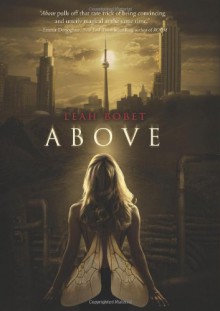
Very occasionally, in the midst of all the other books, you come across one that feels like it was written literally and specifically for you. An Inheritance of Ashes is one of those books for me. As such–fair warning–the rest of this post is not even going to be remotely unbiased.
There are several things that An Inheritance of Ashes has going for it. I loved the richness of the language; it’s a marvelous combination of realistic (and often funny) dialogue, and poetic prose without a misplaced word. The book opens like this: “The barley was in. The stubble of it lay bent-broke in the fields as far as the eye could see, rows of golden soldiers, endlessly falling, from the river to the blacktop road. On a clear evening, with the harvesting done, you could see both river and road from the farmhouse porch: every acre, lined in sunset light, of Roadstead Farm.” It’s lovely to read, and on re-reading it just now, I caught so many echoes that we’ll see later on in the book.
But while language is certainly important, for me as a reader characters will make or break a book. And here they make it. I cared about all of them: Marthe, and Heron, and Asphodel Jones. Even the more minor characters read as rounded and vibrant in their own right. As I think about it, I suspect that this is quite intentional; that we are supposed to see all of these people as real and important.
However, Hallie, our narrator, is central to this story. We have a tight first person narration here; we see everything through her eyes, through her experiences, and personality, and biases. Bobet is quite aware of this and plays with it throughout the book. While I wouldn’t say that Hallie is exactly an unreliable narrator, we are reminded several times that her point of view is not the only one.
Hallie’s voice is clear and strong and wonderful. She is neither perfect nor passive. She reads as very human: flawed, stubborn, contradictory, full of hope and fear and wanting to love. I completely and utterly believed in her.
The other area where An Inheritance of Ashes really shone for me was in the themes. Partly this is personal–the way Hallie and Marthe’s family is described, the way they struggle to deal with that past while not letting it define them, the way they don’t always succeed–all of that rang so familiar and so true that it felt almost eerie. It moved me to tears several times. I kept thinking, “Yes. This is how it is. This is how it feels. This is how I feel.”
But as well as this aspect, I also truly appreciated the way the book shows the importance of relationships, that our strength lies in each other. That it lies in reaching out, beyond all hope (a little bit of Cordelia Vorkosigan there, maybe). And again there’s that moment when Hallie’s perspective is shown to be limited, when the twists of the past are finally unknotted and we see, with her, a different truth. It might not have worked, but here it does, and it reinforces the idea that by reaching towards others, we can find our own strength.
Finally, I’ll mention that I found the worldbuilding and imagery here fantastic, and gorgeous, and scary, in all the right ways. There’s a lot of depth and richness to the images and the way they tie into the worldbuilding. I really felt that sense of history lying behind the story that we don’t see but that informs everything else.
I’m so glad that the Cybils gave me a reason to pick this one up; it’it will absolutely be one of my favorite books for the year, and one I intended to re-read regularly.
Book information: 2015, Clarion Books; YA
Book source: review copy from the publisher provided for the Cybils
_____
Other reviews: The Midnight Garden, Teen Reads, Kirkus, you?

 Log in with Facebook
Log in with Facebook 






